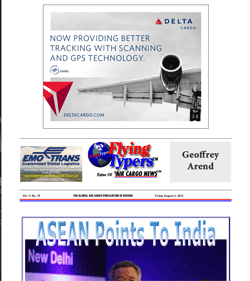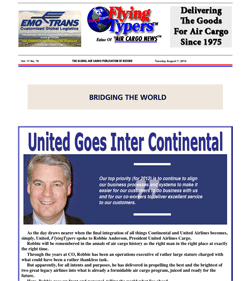| 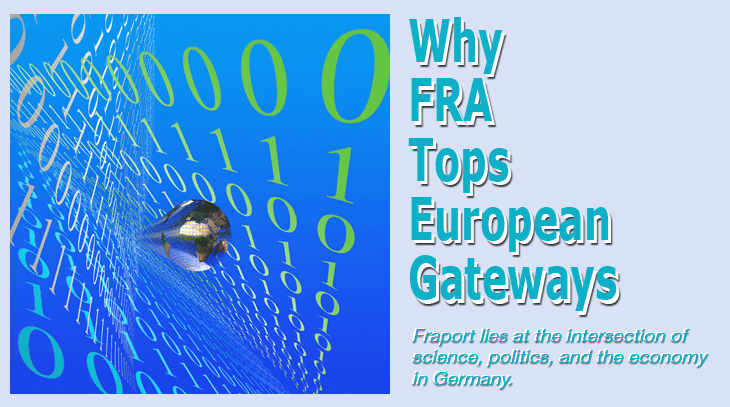
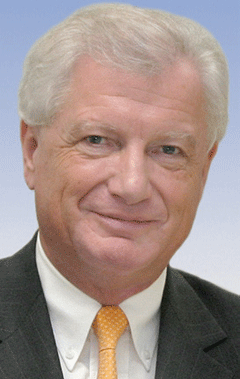 FlyingTypers
sat down with Volker Zintel, project
manager for air transport and
security for the House of Logistics
& Mobility (HOLM). Mr. Zintel
has a wealth of experience and
is well connected; he served as
executive VP for FRAPORT in charge
of security, was the erstwhile
police chief at the airport during
the 1981-1984 Startbahn West (takeoff
runway) construction years, which
were plagued by violent demonstrations
by its opponents, and was interwoven
with politics as Mayor of Hochheim,
an idyllic town known for its
wines that lies 20 minutes southwest
of Frankfurt. FlyingTypers
sat down with Volker Zintel, project
manager for air transport and
security for the House of Logistics
& Mobility (HOLM). Mr. Zintel
has a wealth of experience and
is well connected; he served as
executive VP for FRAPORT in charge
of security, was the erstwhile
police chief at the airport during
the 1981-1984 Startbahn West (takeoff
runway) construction years, which
were plagued by violent demonstrations
by its opponents, and was interwoven
with politics as Mayor of Hochheim,
an idyllic town known for its
wines that lies 20 minutes southwest
of Frankfurt.
HOLM
is a fully financed initiative
of the Hessian state and the Frankfurt
city government with the objective
of bringing together an effective
network of science, politics,
and the economy to systematically
further develop the logistics
of the region. It also aims to
project concentric circles to
attract global expertise and develop
a new approach to the socio-economic
challenges affecting the sustainability
of Germany as a logistics powerhouse.
It’s not something one gets
done in an afternoon, but rather
a long-term vision borne from
the recognition that the key players—airlines,
airports, and air traffic control—have
not succeeded, individually or
collectively, in communicating
with the public effectively, and
that endangers the long-term viability
of Europe’s third largest
passenger and number one cargo
airport. And it’s not just
the airport per se, but the economic
engine that has brought a level
of prosperity that many have long
taken for granted.
Frankfurt airport is intermodal
when it comes to passengers –
the vast underground train station
handles anything from regional
to metro area traffic with great
efficiency. As urban trends go,
families with small children are
attracted to the greener suburbs
and smaller towns only to discover
that commuting to a workplace
in the city becomes quite a chore.
The convenient public transportation
network doesn’t extend beyond
the city limits, so eventually,
the families return. Current studies
have established that another
10 percent growth in metro public
transportation demand would collapse
the entire system, bringing it
to its knees. Adding tracks and
railcars has limits.
Then
there is the paradox of the well-heeled
Burger flying off to Phuket or
the Maldives for some sun and
relaxation, and once back home
sits down comfortably to e-mail
complaints about airport noise,
without seemingly connecting the
dots. It is also a sign of the
times—the conundrum of the
quality of life of an individual
versus the benefit to society
as a whole.
A
few generations ago there were
demonstrations against the Vietnam
War, then against nuclear power
plants and the storage of spent
fuel rods, which mobilized activism.
Environmental movements of all
sorts have since sprouted up and
are now seeing another incarnation
in protests against the airport,
and special focus on the new northwest
runway, opened last October, and
the noise resulting from new flight
approach patterns. Given the flight
frequencies, at certain times
of the day apparently the noise
is nearly constant, affecting
a whole new group of citizens
whose lives have been disrupted.
From day one of opening the new
runway, landing traffic has been
divided 50-50 between the old
and the new runway, so that the
impact was massive and immediate.
Forethought by all concerned could
have come up with a better solution
to gradually shift the flights
in 10 percent increments at a
time.
The
backlash has taken politicians
completely by surprise, according
to Herr Zintel, and the authorities
as a whole have been ill prepared
to address it—resulting
in a communications disaster.
The facts, if that mattered, are
that compared to 1980 and 1990,
the overall airport noise level
is unchanged; the former US Airbase
and the lumbering C-5, C-17, and
C-130 are gone. Modern aircraft
have a significantly smaller noise
footprint, yet the overall number
of flights has grown.
And
it’s not just Frankfurt
that received the entire media
blitz—a recent referendum
in Munich decided against building
a much-needed third runway by
54 to 46, initiated by the Green
party. And the citizenry of Munich
is virtually unaffected by airport
noise because of its location
25 miles northeast of the city,
while the communes nearby had
no vote, yet are next door. And
again, the politicians were embarrassed
because right, left, and center
lobbied for building the 3rd runway.
Societal changes have generated
a citizenry ready to defend its
lifestyle and any real or perceived
infringement on it triggers an
outcry. Under these circumstances,
it becomes very difficult to sustain,
plan, and further develop modern
transportation hubs, which, when
measured, are actually bursting
at the seams.
HOLM
aims to tackle this thorny and
complex phenomenon by bringing
together an aviation management
cluster comprised of multidisciplinary
experts. Twelve universities,
faculties and institutes in the
state of Hesse (Hessen) are involved
to varying degrees—economists,
social scientists, and an advisory
board including businesses such
as Bombardier, Deutsche Post DHL,
Proctor & Gamble, and FRAPORT.
Contacts to the Freie Universität
Berlin are ongoing, all in a concerted
effort to promote openness and
transparency and address global
challenges.
On
the cargo side, FRAPORT works
with HOLM on a joint taskforce
to study the chronic Cargo City
congestion problems. With up to
1,200 trucks a day during peak
time but only 600 parking spots,
it has become an unmanageable
situation. There are many warehouses
to handle cargo, but Cargo City
was built without a rigorous study
of the needs. It turns out even
recently there has been insufficient
data available regarding the breakdown
of truck movements, directional
information, or how many drops
each makes. There was the anecdotal
case of a truck that made 17 drops.
Contrary to other major cargo
projects, such as the port of
Hamburg, which was well planned
and designed, at Cargo City this
is being done after the fact.
There
is much to do and only a much
more collaborative approach and
openness to new concepts and ideas
can succeed. It’s a recurring
theme—airlines, handling
companies, and airports all need
to turn a profit, and clearly
each has divergent objectives,
but it cannot be at each other’s
expense.
Ted
Braun |






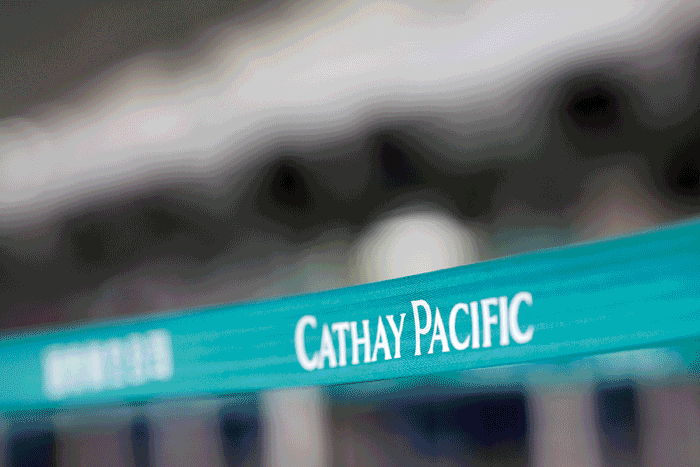

 FlyingTypers
sat down with Volker Zintel, project
manager for air transport and
security for the House of Logistics
& Mobility (HOLM). Mr. Zintel
has a wealth of experience and
is well connected; he served as
executive VP for FRAPORT in charge
of security, was the erstwhile
police chief at the airport during
the 1981-1984 Startbahn West (takeoff
runway) construction years, which
were plagued by violent demonstrations
by its opponents, and was interwoven
with politics as Mayor of Hochheim,
an idyllic town known for its
wines that lies 20 minutes southwest
of Frankfurt.
FlyingTypers
sat down with Volker Zintel, project
manager for air transport and
security for the House of Logistics
& Mobility (HOLM). Mr. Zintel
has a wealth of experience and
is well connected; he served as
executive VP for FRAPORT in charge
of security, was the erstwhile
police chief at the airport during
the 1981-1984 Startbahn West (takeoff
runway) construction years, which
were plagued by violent demonstrations
by its opponents, and was interwoven
with politics as Mayor of Hochheim,
an idyllic town known for its
wines that lies 20 minutes southwest
of Frankfurt.
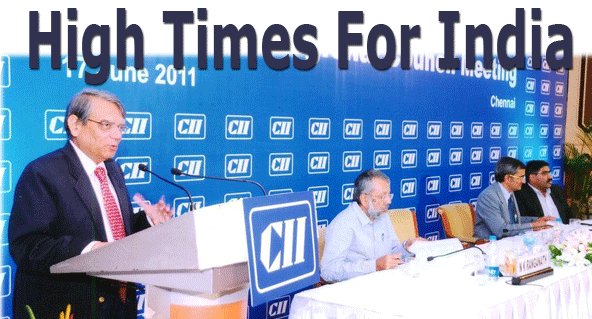 Rakesh
Mohan addressing the Confederation
of Indian Industry Regional Council
Meeting in Chennai in 2011.
Rakesh
Mohan addressing the Confederation
of Indian Industry Regional Council
Meeting in Chennai in 2011.
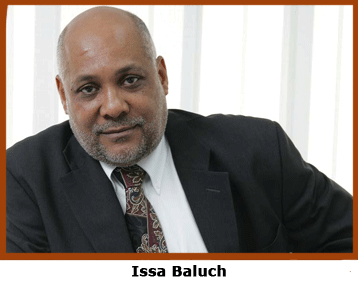 Issa
Baluch may know as much about
logistics as anybody you ever
met.
Issa
Baluch may know as much about
logistics as anybody you ever
met.

